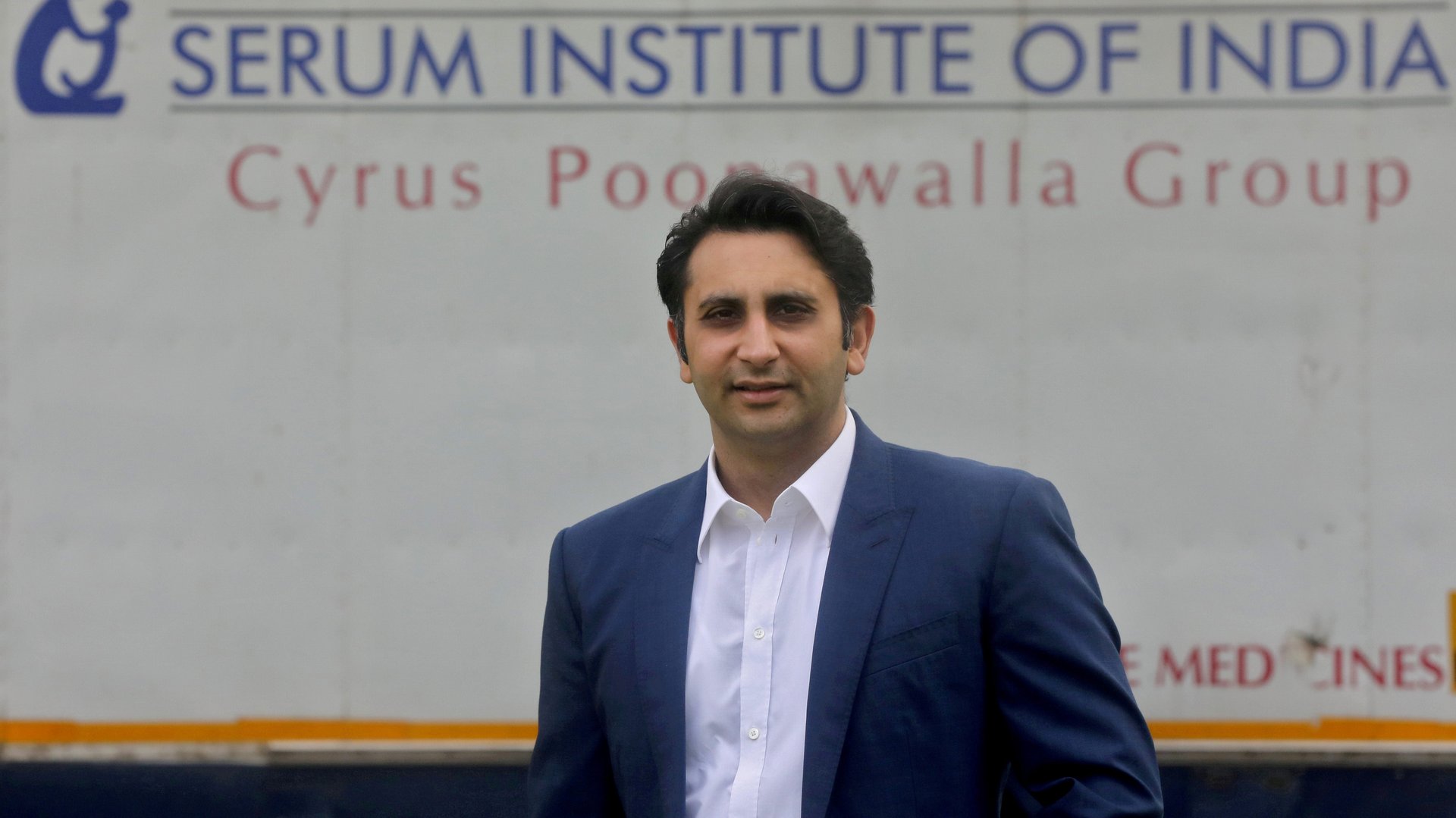India’s largest vaccine maker threatens to cut production by half
India’s vaccine saga appears to be coming full circle.


India’s vaccine saga appears to be coming full circle.
After months of battling shortages, missing international deadlines to prioritise domestic demand, and pressure from local governments, Serum Institute of India’s (SII) Adar Poonawalla now says he might cut vaccine production by half.
“The company is in a dilemma as supply is more than demand for Covishield and it has to dial down the production. We will complete our existing orders to the government by next week,” Poonawalla, CEO of SII, told news channel CNBC-TV18.
Covishield, the Indian brand of AstraZeneca covid-19 vaccine, accounts for nearly 90% of the doses administered in India. SII currently produces 250 million doses of the vaccine every month.
“SII has 500 million doses of Covishield. Half of that is finished product and half of that is bulk, which can be filled and finished in a matter of two months and it has a shelf life of nine months,” Poonawalla said. “It’s available on priority to the Indian government.”
He added that this stock will be diverted to other places should India not want it. The country is still debating the need for covid-19 booster shots and has only opened up vaccines for adults over the age of 18.
SII is the world’s largest producer of the AstraZeneca vaccine. SII’s contracts make India the world’s largest producer of any covid-19 vaccine after China, according to the independent policy collective Global Commission for Post-Pandemic Policy.
But it was a journey hindered by short-sighted policy and a devastating second wave fueled by the delta variant.
India’s vaccine shortages
Poonawalla’s company began producing the vaccine in late 2020, first on an at-risk basis and then facilitated through a $300 million (2,200 crore rupees) grant from the Bill and Melinda Gates Foundation. As part of the agreement, SII was also to supply 200 million doses to Covax, a worldwide initiative aimed at equitable access to covid-19 vaccines.
But by March 2021, with the onset of the second wave, SII had to prioritise demand from the Indian government. The company had to default on its international orders and was able to fully resume exports only by September.
In the interim, the spotlight was on Poonawalla, who told The Times newspaper in London that he was facing immense pressure from the various state governments in India. He was living in London for a while, alleging that the crisis had forced him to shift for the safety of his family.
All of this pointed to a lack of foresight and planning on the Indian government’s part, which did not place concrete orders for doses in advance. Adding to SII’s troubles, the government introduced a policy wherein state governments and private hospitals had to directly procure vaccines from manufacturers. India’s supreme court called this “arbitrary and irrational.”
Soon after, it was reversed and all procurement, except those by private hospitals, came under the central government’s purview.
Gradually, though, vaccination picked up in the country, with 1.29 billion doses administered to date. Poonawalla could now set his sights on global orders.
Fixing vaccine inequity
Omicron has now put the spotlight on the need to eradicate vaccine inequity. Experts agree that unless a large part of the world is sufficiently protected, newer covid-19 variants have a greater chance of emerging.
To this end, Covax has struggled to get low- and middle-income countries vaccinated. If Poonawalla’s SII were to divert the stockpile towards global orders, it would be a huge boost to Covax, which heavily depends on the AstraZeneca vaccine. This is also because Pfizer and Moderna’s mRNA vaccines need ultra-cold storage and special logistics that make them economically unviable in several countries.